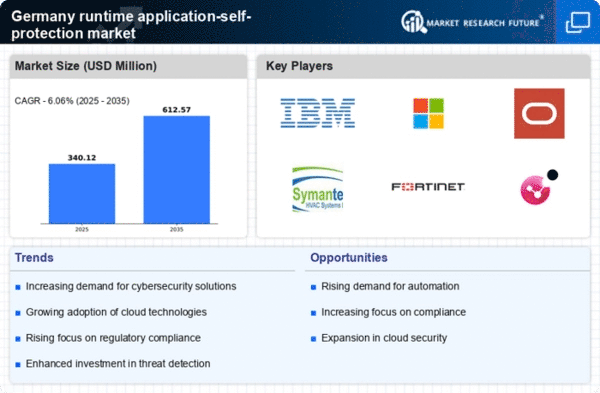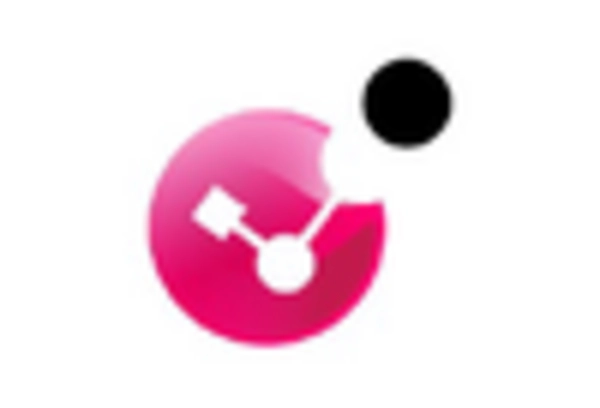Rising Cybersecurity Threats
The increasing frequency and sophistication of cyberattacks in Germany has heightened the demand for robust security measures. Organizations are increasingly recognizing the necessity of runtime application-self-protection market solutions to safeguard sensitive data and applications. In 2025, it is estimated that cybercrime could cost the global economy over $10 trillion annually, prompting German enterprises to invest heavily in protective technologies. The runtime application-self-protection market is thus positioned to grow as businesses seek to mitigate risks associated with data breaches and malware attacks. This trend is further supported by the German government's initiatives to enhance cybersecurity frameworks, which encourage the adoption of advanced protective measures.
Regulatory Compliance Pressures
In Germany, stringent data protection regulations, such as the General Data Protection Regulation (GDPR), compel organizations to adopt comprehensive security solutions. The runtime application-self-protection market is significantly influenced by the need for compliance with these regulations, which mandate the protection of personal data. Non-compliance can result in hefty fines, reaching up to €20 million or 4% of annual global turnover, whichever is higher. As a result, businesses are increasingly investing in runtime application-self-protection technologies to ensure adherence to legal requirements and to avoid potential penalties. This regulatory landscape is likely to drive growth in the market as organizations prioritize compliance alongside security.
Digital Transformation Initiatives
The ongoing digital transformation across various sectors in Germany is a key driver for the runtime application-self-protection market. As organizations migrate to digital platforms and adopt new technologies, the need for enhanced security measures becomes paramount. In 2025, it is projected that the digital economy in Germany will account for over 20% of the country's GDP. This shift necessitates the integration of runtime application-self-protection solutions to protect applications from vulnerabilities that may arise during the transformation process. Consequently, businesses are increasingly recognizing the importance of embedding security within their application development lifecycle, thereby fueling demand for runtime application-self-protection market offerings.
Increased Investment in IT Security
German companies are significantly increasing their investments in IT security, driven by the need to protect against evolving threats. In 2025, IT security spending in Germany is expected to exceed €10 billion, reflecting a growing awareness of the importance of cybersecurity. This trend is likely to benefit the runtime application-self-protection market, as organizations seek to implement comprehensive security strategies that include runtime protection measures. The focus on proactive security solutions indicates a shift from traditional reactive approaches, thereby enhancing the market's growth potential. As businesses allocate more resources to security, the runtime application-self-protection market is poised to capture a larger share of the overall IT security budget.
Growing Awareness of Application Security
There is a notable increase in awareness regarding application security among German enterprises, which is driving the runtime application-self-protection market. Organizations are beginning to understand that traditional perimeter defenses are insufficient in the face of modern threats. As a result, there is a shift towards integrating security directly into applications. This awareness is reflected in the growing number of security training programs and initiatives aimed at educating developers about secure coding practices. In 2025, it is anticipated that the runtime application-self-protection market will benefit from this cultural shift, as more companies prioritize application security as a fundamental aspect of their overall security strategy.
















